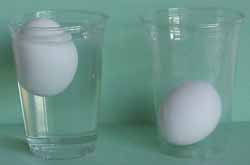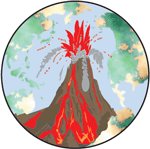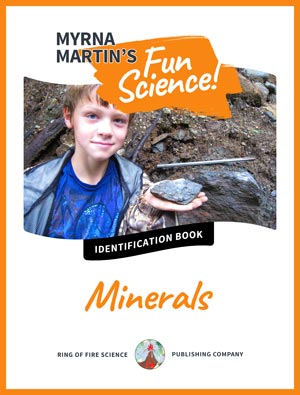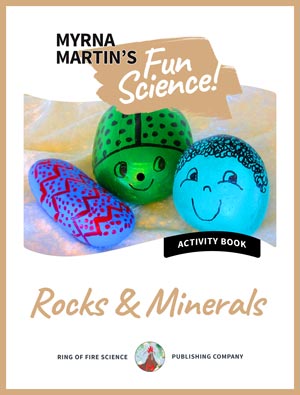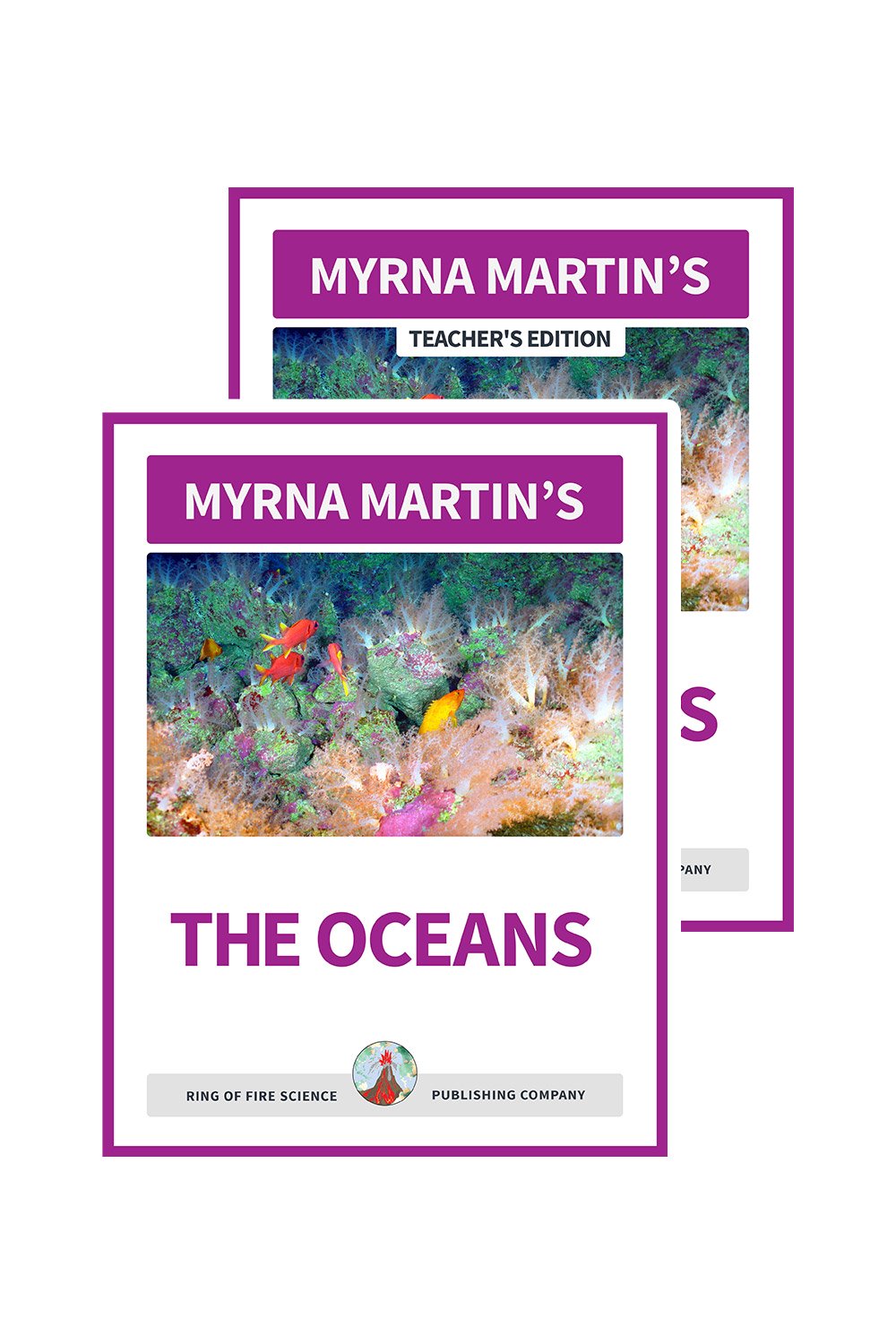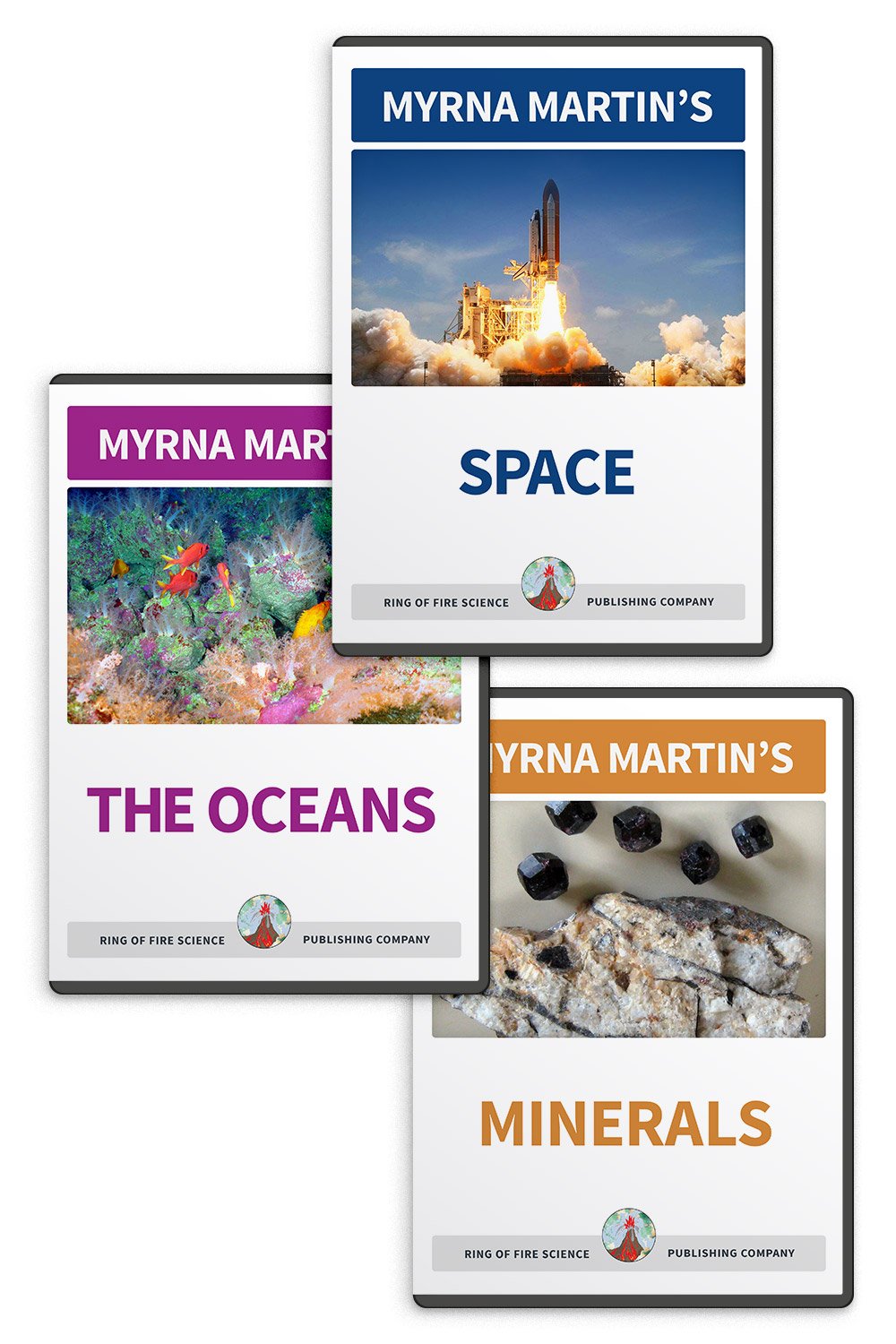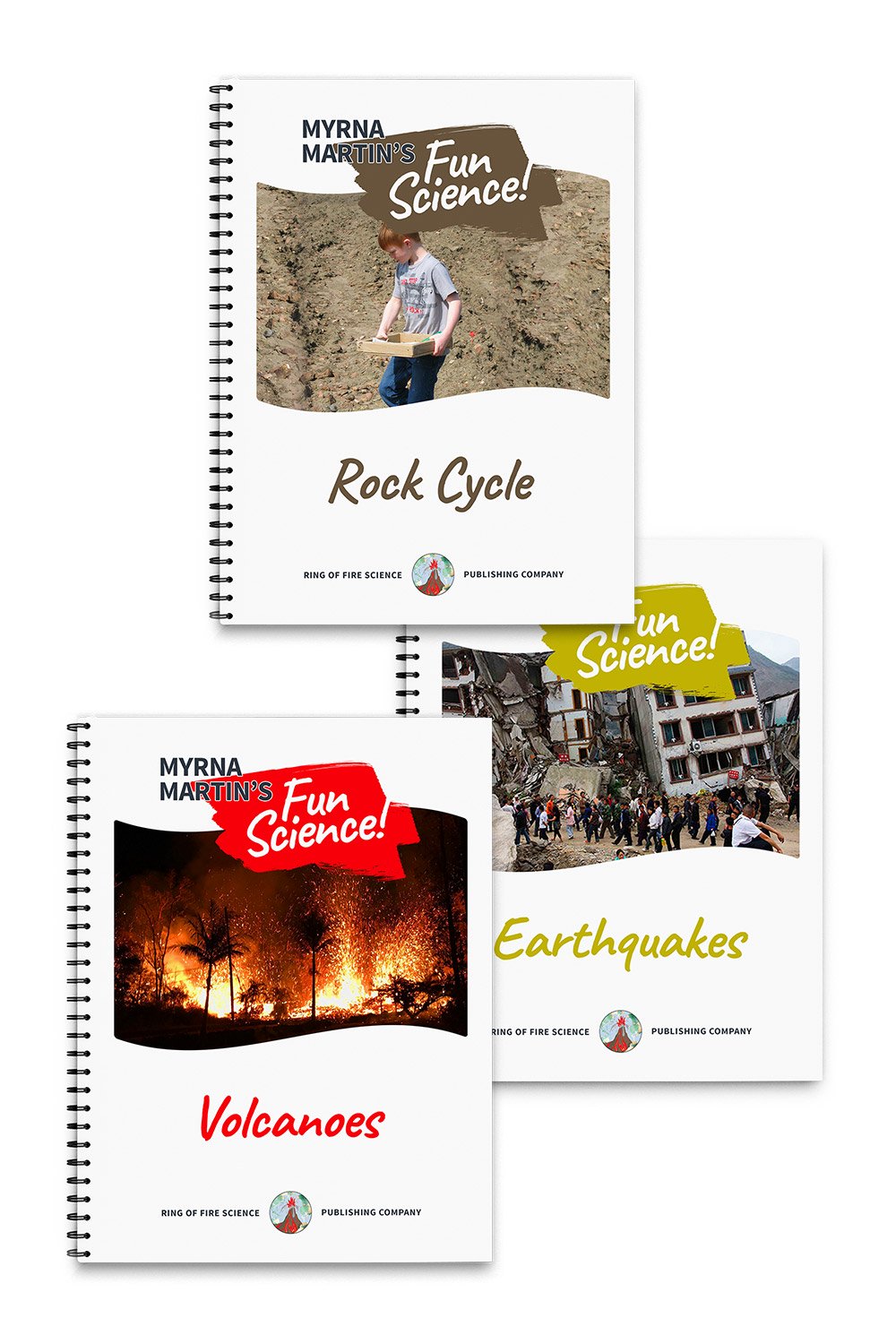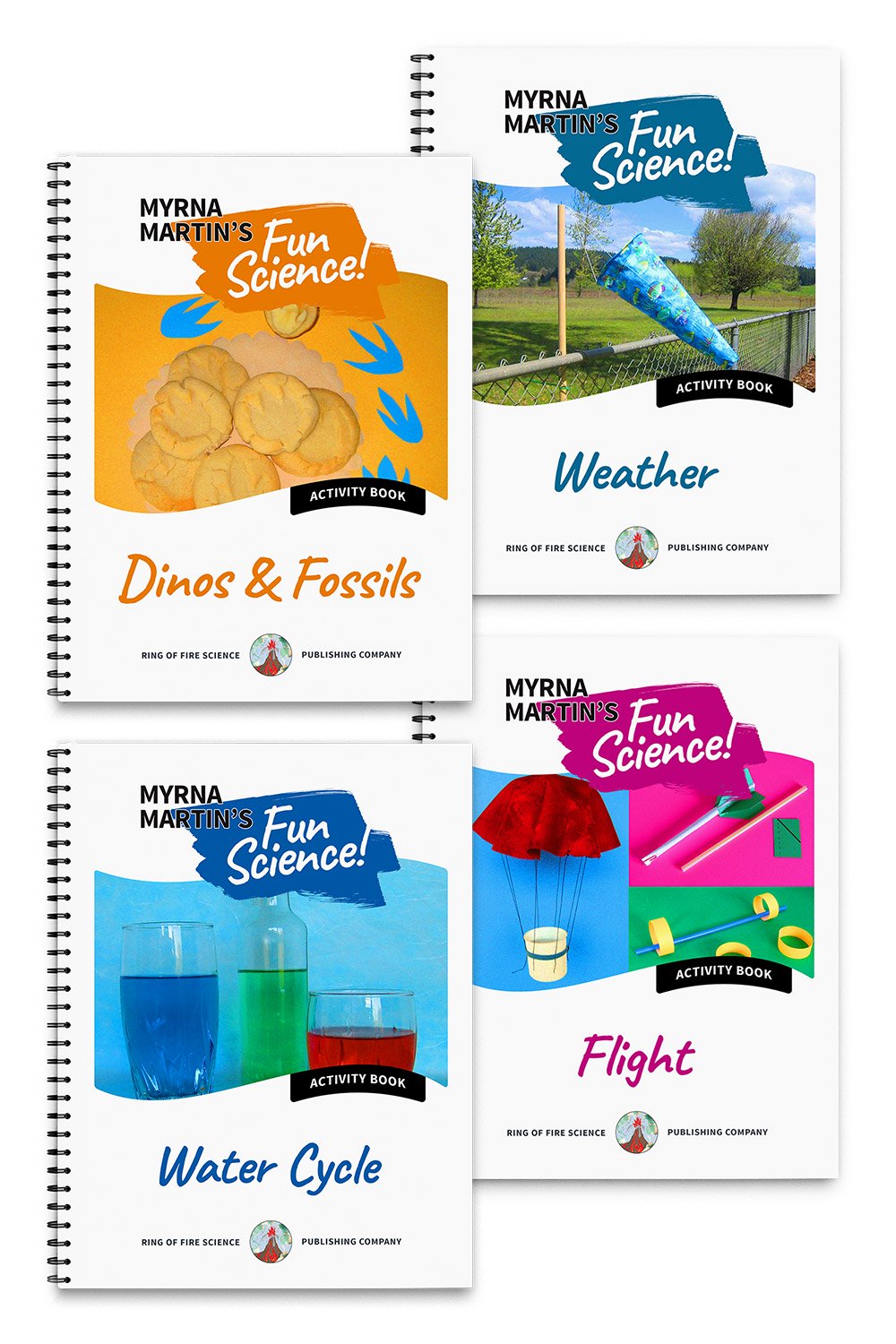Earth Science Experiments, Floating Eggs
These Earth Science Experiments use fresh eggs for a fun and easy science activity. In this experiment you will learn how eggs can actually float in water instead of sinking. After getting your eggs to float you will try floating an egg between fresh and salty water.
Materials
- Fresh egg
- Water glass
- Water
- Salt
- Tablespoon
Directions
- Fill a clear glass a little over half full of water.
- Carefully place an egg in the glass. It should lay on the bottom of the glass if it is fresh. Eggs that stand on end or float to the surface are older and should not be used for this experiment.
- Remove the egg from the glass and begin stirring in salt. Stir in one tablespoon of salt at a time. Continue adding salt to the water until it is saturated and salt crystals collect on the bottom of the glass. Place the egg again into the water and see if it will float.
- The egg should float on or near the surface of the water. If it doesn't try the experiment again but use warmer water because more salt will dissolve in warm water than cold water. Keep trying if a first you don't succeed.
Try these science experiments
- Take your egg out of the salt
water. Pour out enough water so the glass is half full of salty water.
- Slowly and carefully add fresh water to the glass by spooning in the
water onto the surface.
- When your glass is about two-thirds full return the egg to the glass. The egg should float suspended in the water.
- Empty the salty water out of the glass and fill it with water.
Add sugar instead of salt to the water just like you did in the first
experiment.
- When you cannot dissolve any more sugar in the water see if your egg floats.

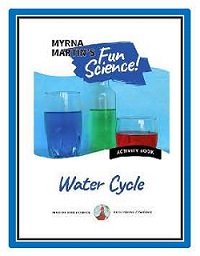
Click for More Information and to Order
Science behind the experiment
In these Earth Science Experiments you found that eggs are denser than fresh water so they sink when placed in fresh water. Dissolving salt in the water increases its density.
The density of the salty water gives it more lifting power. That is why you can float an egg in salty water but not in plain fresh water.
If you go swimming in the ocean you will find it is easier to float in the ocean than a fresh water lake. The Dead Sea is one of the saltiest lakes in the world. People love to go there to float on the lake's water!
More Links to Science Experiments
Easy Science Experiment, Tin Foil Boats How many pennies do you think are the maximum you could put in a tin foil boat? Try this fun experiment and find out.
Elementary Science Experiments, Penny Drop In this fun science experiment you will see how many drops of water you can put on a penny without it overflowing.
Fun Science Experiment, Marble Powered Race Cars Create a ramp, a paper car and see how far you can make the car travel powered only by a marble!
Gravity Experiments, Perfect Landing Astronauts in the early days of space exploration returned to Earth using parachutes to slow their descent. In this experiment you create a variety of parachutes and test them.
Kids Fun Science The links on this page include information science activities, science experiments, plate tectonics, the rock cycle and much more.
Easy Science Experiments Lots of easy experiments for kids of all ages.
Earth Science Experiments, Floating Eggs
Find out how to float a fresh egg in water in this easy Earth science experiments.
KIDS FUN Science Bookstore
Check out Myrna Martin's award winning textbooks, e-books, videos and rock sets. The Kids Fun Science Bookstore covers a wide range of earth science topics. Click here to browse.


